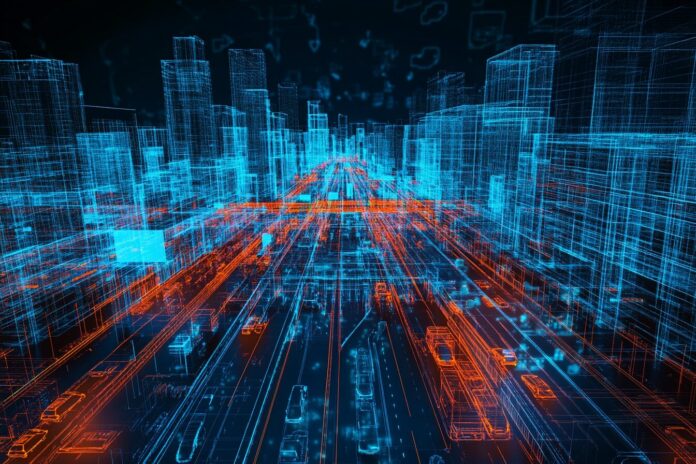Unlocking Smarter Cities with Artificial Intelligence
City life is evolving at a rapid pace, and so are the challenges urban residents face daily. Most importantly, artificial intelligence (AI) is emerging as a vital tool in this transformation, redefining not only infrastructure management but also the daily experiences of those living in urban environments. Because AI leverages vast amounts of data and predictive analytics, its integration into city planning helps create adaptive, resilient, and efficient urban spaces.
Moreover, AI-driven solutions enable planners to understand complex urban dynamics better. Transitioning from traditional methodologies, technology now informs decisions that impact everything from resource allocation to community safety. Therefore, cities have the opportunity to harness intelligent systems to drive progress and enhance quality of life. For more detailed insights, you can refer to articles like Sandtech’s perspective on AI in urban planning and ArchDaily’s feature on urban design tech.
Optimizing City Transportation with AI
Urban mobility remains a core challenge that requires innovative solutions. AI-driven systems are revolutionizing transportation by analyzing real-time data from traffic patterns, public transit activity, and pedestrian flow. Because these systems can continuously adapt to changing conditions, city planners are empowered to pinpoint congestion points and devise more efficient traffic routing strategies.
Digital twin technology exemplifies this progress. By creating virtual models of city infrastructure, urban planners can simulate and test new transportation policies, such as the introduction of bike lanes or the reconfiguration of traffic light timings, before actual implementation. Most importantly, this proactive approach not only saves time and resources but also minimizes the inconvenience for residents during the transition period. As further demonstrated by resources like Sandtech’s comprehensive analysis, smart transportation is a critical component of future cityscapes.
Building More Sustainable Urban Environments
Today’s cities are ambitiously striving to reduce their carbon footprint and become more sustainable. AI plays an instrumental role in achieving these goals by optimizing energy consumption, managing waste efficiently, and integrating renewable energy sources into urban grids. For instance, smart grids powered by AI can automatically balance energy supply and demand, incorporating intermittent sources like solar and wind power into the mix.
Because these intelligent systems predict maintenance needs and manage load distribution in real time, they help reduce operational costs significantly. Besides that, AI’s capability in predictive maintenance lends tremendous support in extending the lifespan of utility networks and infrastructure. This multifaceted impact is well-documented in studies and articles, including detailed reports on smart city initiatives at Virginia Tech and Cities Today.
Improving Urban Planning Accessibility
Historically, urban planning was a realm reserved for experts with extensive technical background. However, the advent of AI has democratically broadened access to sophisticated planning tools. Advanced models such as ChatGPT and Google’s Gemini now facilitate comprehensive analyses of urban features, from street safety to walkability and lighting conditions.
Because AI can process street-view images and zoning proposals swiftly, smaller cities and planners with limited technical expertise can harness these insights to create more inclusive planning strategies. Most importantly, this technological empowerment ensures that urban planning becomes a collaborative process, benefiting from the diverse perspectives of the entire community. Detailed discussions on how AI can simplify planning decisions are available at Virginia Tech’s research portal and Cities Today.
Facilitating Efficient Urban Design Decisions
In the realm of urban development, making informed decisions quickly is paramount. AI can sift through enormous datasets—ranging from traffic flows and housing densities to pollution levels—to provide actionable insights that help shape more responsive city planning. Transition words like therefore and moreover underscore how technology facilitates rapid data analysis and policy adjustments.
Because AI bridges the gap between raw data and practical solutions, city officials can review development projects and even propose zoning changes more efficiently. Besides that, this computational horsepower allows for real-time feedback on proposed master plans, thereby streamlining the entire urban design process. Insights obtained from institutions such as Johns Hopkins Carey Business School emphasize the crucial role AI plays in future-proofing urban policy.
Enhancing Resident Engagement and Public Safety
Effective urban governance hinges on robust communication between city officials and the residents they serve. AI fosters this engagement by powering smart city platforms that utilize chatbots and virtual assistants to address citizen inquiries and gather feedback efficiently. Because these platforms work around the clock, they ensure that residents are always informed and heard.
Moreover, AI’s capacity to analyze crime data, emergency call patterns, and traffic incidents plays a pivotal role in reinforcing public safety. Most importantly, by identifying hotspots and predicting potential issues, AI helps deploy resources more strategically, which fosters a safer environment for everyone. This capability is further explored in-depth by Johns Hopkins’ research and practical examples showcased in recent urban updates.
The Road Ahead: Human-Centered Smart Cities
The evolution of smart cities is gradually steering towards a human-centered approach, where technology enhances everyday life rather than overshadowing it. AI-driven systems make city governance more efficient, support cleaner environments, and pave the way for safer streets. Consequently, urban landscapes across the globe are set to benefit from technological innovations that not only improve infrastructure efficiency but also bolster community well-being.
Furthermore, this transformation is not solely about technological leaps—it signifies a paradigm shift in how cities engage with their residents. Because AI helps break down barriers between complex data and actionable policies, the future of urban living appears increasingly promising. Therefore, the integration of AI into urban planning is a critical investment in making cities more adaptable, inclusive, and resilient for all inhabitants.
References
- AI in Urban Planning: Using Tech to Redefine City Design (Sandtech)
- Artificial Intelligence and Urban Planning: Technology as a Tool for City Design (ArchDaily)
- Virginia Tech: AI Could Help Improve City Planning
- Cities Today: How AI Could Improve City Planning
- Johns Hopkins: AI and the Future of Cities



